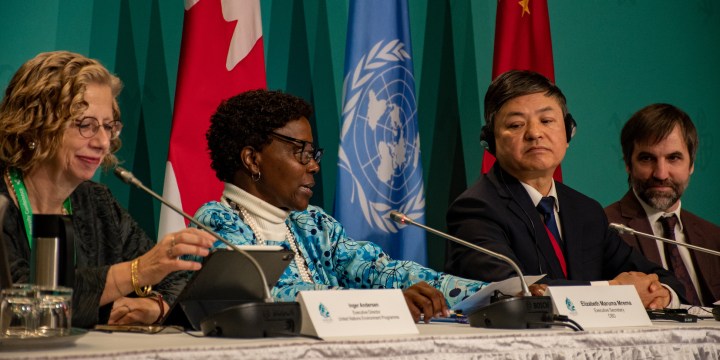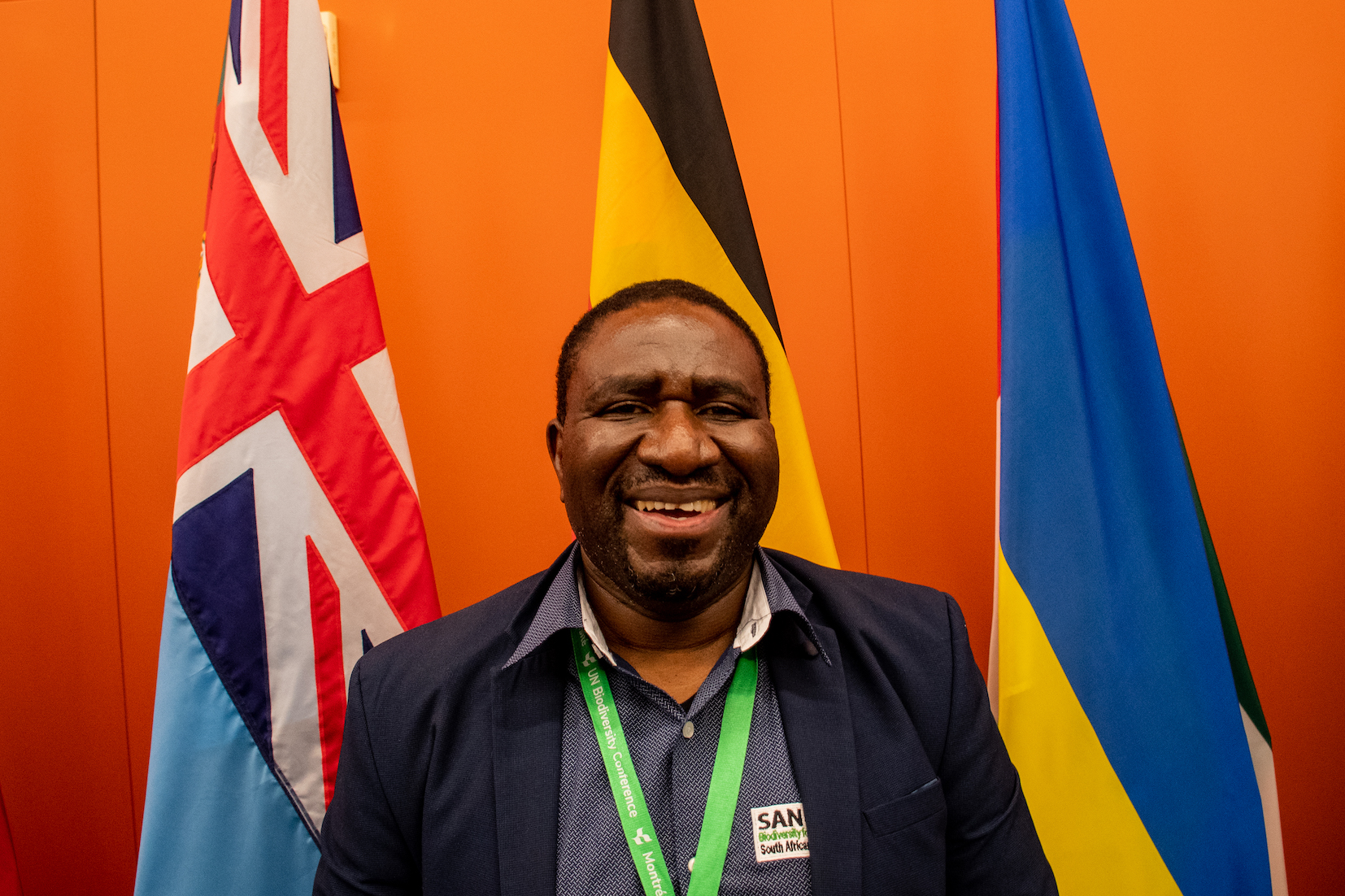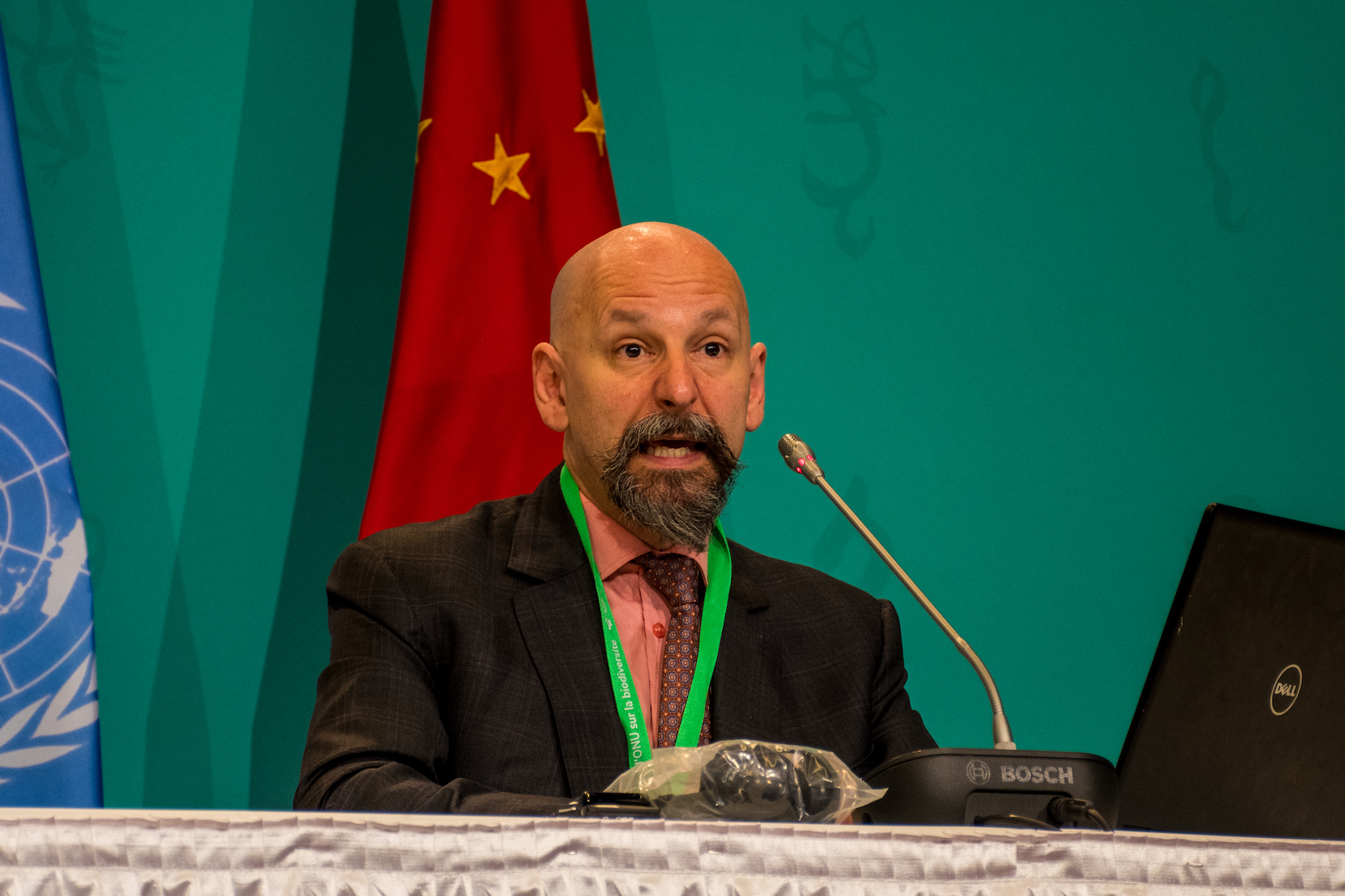COP15 HEAD-TO-HEAD
Money’s ‘stretched’ – the North’s argument against a biodiversity fund that prompted South to walk out of talks

Midway through the biggest United Nations biodiversity conference of the decade, developing countries walked out of finance negotiations after developed countries refused to discuss the Africa group’s proposal for a new global biodiversity fund. Co-chair of the Global Biodiversity Framework group Basil van Havre says it would be reductionist to say there is a north-south divide, but did acknowledge financial flows from the North are ‘stretched and limited’.
In the early hours of Wednesday, a group of developing countries – including the Africa group, Brazil, Mexico and other like-minded megadiverse countries – decided to walk out of negotiations for resource mobilisation at the UN Biodiversity Conference (COP15) in Montreal, Canada.
David Ainsworth, head of communications for the UN Secretariat of the Convention on Biological Diversity, said at a press briefing on Wednesday morning that the issue that led to the walkout was related to a “discussion on the creation of a new fund for biodiversity and the difference of opinion between developed and developing countries”.
The COP15 president and secretariat organised a meeting of heads of delegations later that day in an attempt to resolve the dispute.
Shonisani Munzhedzi, CEO of state entity South African National Biodiversity Institute (SANBI) and co-chair of the contact group for resource mobilisation, which was walked out on, explained to Daily Maverick earlier during the conference that the fund Ainsworh was referring to is “a call by African nations to say that there must be a Global Biodiversity Fund, which is a global instrument for biodiversity finance”.
“It may also be called to the private sector or any other, but it’s a fund that must be capitalised to deal specifically with biodiversity… similar to what you see with climate change, where there is a GCF [Green Climate Fund].”
This has been a contentious issue at this conference because many nations have said that instead of creating a new fund, the existing financing mechanism, the Global Environment Facility (GEF), should be enhanced.
The GEF addresses the three conventions on biodiversity, climate and desertification established at the Rio Earth Summit in 1992.

Shonisani Munzhedzi, CEO of the South African National Biodiversity Institute and co-chair of the contact group for resource mobilisation, at COP15. (Photo: Julia Evans)
However, the conventions on climate change and desertification have their own funds – the Green Climate Fund and the Land Degradation Neutrality Fund – so the like-minded megadiverse countries are calling for something similar for biodiversity.
But not everyone wants this.
“The call was to say there should be an instrument that should be able to deal with that, but only focusing on biodiversity,” said Munzhedzi.
“There are others who are saying the GEF… should be the arm and be enhanced to do that, instead of creating a new one. There is that aspect on the table that is a bone of contention, seriously.”
In a special briefing for the Earth Journalism Network on Wednesday afternoon, Basile van Havre, co-chair of the post-2020 Global Biodiversity Framework (GBF), the main text being negotiated at COP15, emphasised that it would reductionist to say there is just a north-south (global) divide, and that in his contact group (not where the walkout took place) he has seen willingness, adding: “I’ve pushed hard on people to make compromise.”
Visit Daily Maverick’s home page for more news, analysis and investigations
Van Havre said that while it’s a “simplification” to view all the funding needing to go to developing countries – since the 10 largest countries in the world, including Canada (where this conference is being hosted) have a responsibility address socioeconomic development for indigenous people – ensuring financial flow from where the economic activities happen to where conservation needs are, needs to be negotiated.
“It’s important to realise that what we call ODA, which is government money from the North, is very stretched and is limited,” said Van Havre, “where the big potential is, is on the rest of the pie. How do we mash on all those resources and flow them?
“And I’ve seen major development lately in terms of interest in multilateral development, banks, institutions, etc, to come in and look at those issues.”
Push for grants
On 10 December, Brazil made a statement during a stock-take plenary session at the conference, on behalf of “the like-minded group of developing countries” which includes the African Group, Argentina, Brazil, Bolivia, Cuba, the Dominican Republic, Ecuador, Guatemala, India, Indonesia, Malaysia, the Philippines and Venezuela.
The statement indicated that this conference should emulate the landmark and historic loss and damage fund, with developing countries the main beneficiaries, that was established at the last climate change conference, in Egypt last month (COP27).
The like-minded megadiverse countries are calling for developed countries to mobilise and jointly provide financial grants of at least $100-billion annually, or 1% of global GDP, until 2030.
Munzhedzi said there are many numbers being punted, with some studies by experts indicating that $700-billion per year is needed, $500-billion of which could come from redirecting funds that typically go towards harmful subsidies, and finding $200-billion more.
Read more in Daily Maverick: “Another COP? Here’s what you need to know and why you should care”
In terms of the resources we need at home, Nomfundo Tshabalala, director-general of the Department of Forestry, Fisheries and the Environment, who is leading the South African delegation at COP15, highlighted at a side-event on Wednesday that while biodiversity can address urgent development challenges such as unemployment and poverty, with an estimated at R325-billion generated in 2022 from ecosystem services (5% of GDP), biodiversity is underfunded.
Tshabalala did acknowledge that official development assistance like the GEF have made significant contributions to biodiversity finance, complimented national resources and leveraged significant amounts of co-financing from the government, NGOs and other partners.
However, the largest spender on biodiversity in South Africa, the government, did not have the revenue to cover the necessary expenses for biodiversity financing.

David Ainsworth, head of communications for the UN Secretariat of the Convention on Biological Diversity, at COP15. (Photo: Julia Evans)
Breaking down the numbers, Tshablala said the government contributed R17.8-billion to biodiversity in 2021, compared with R849-million from the private sector and R597-million from NGOs.
This, however, was below the cost of the National Biodiversity Strategy and Action Plan (NBSAP) – a requirement of contracting parties to the Convention on Biological Diversity – which requires R63-billion over the next 10 years.
“However, in addition to these cost estimates, there are a whole range of relatively unknown expenses,” noted Tshaballa, explaining that not all aspects of the NBSAP can be costed confidently – there are invisible expenses, and the targets that are being negotiated in the GBF will require additional resources.
Referring to the 30×30 target currently being negotiated at this conference, which aims to protect 30% of terrestrial and sea areas by 2030, Tshabalabla said that “protected areas of expansion remains a significant cost for the biodiversity sector and the requirements to deliver South Africa’s protected area target will call for a more increased spending in future”. DM/OBP
This story was produced as part of the 2022 CBD COP15 Fellowship organised by Internews’s Earth Journalism Network.



















Comments - Please login in order to comment.